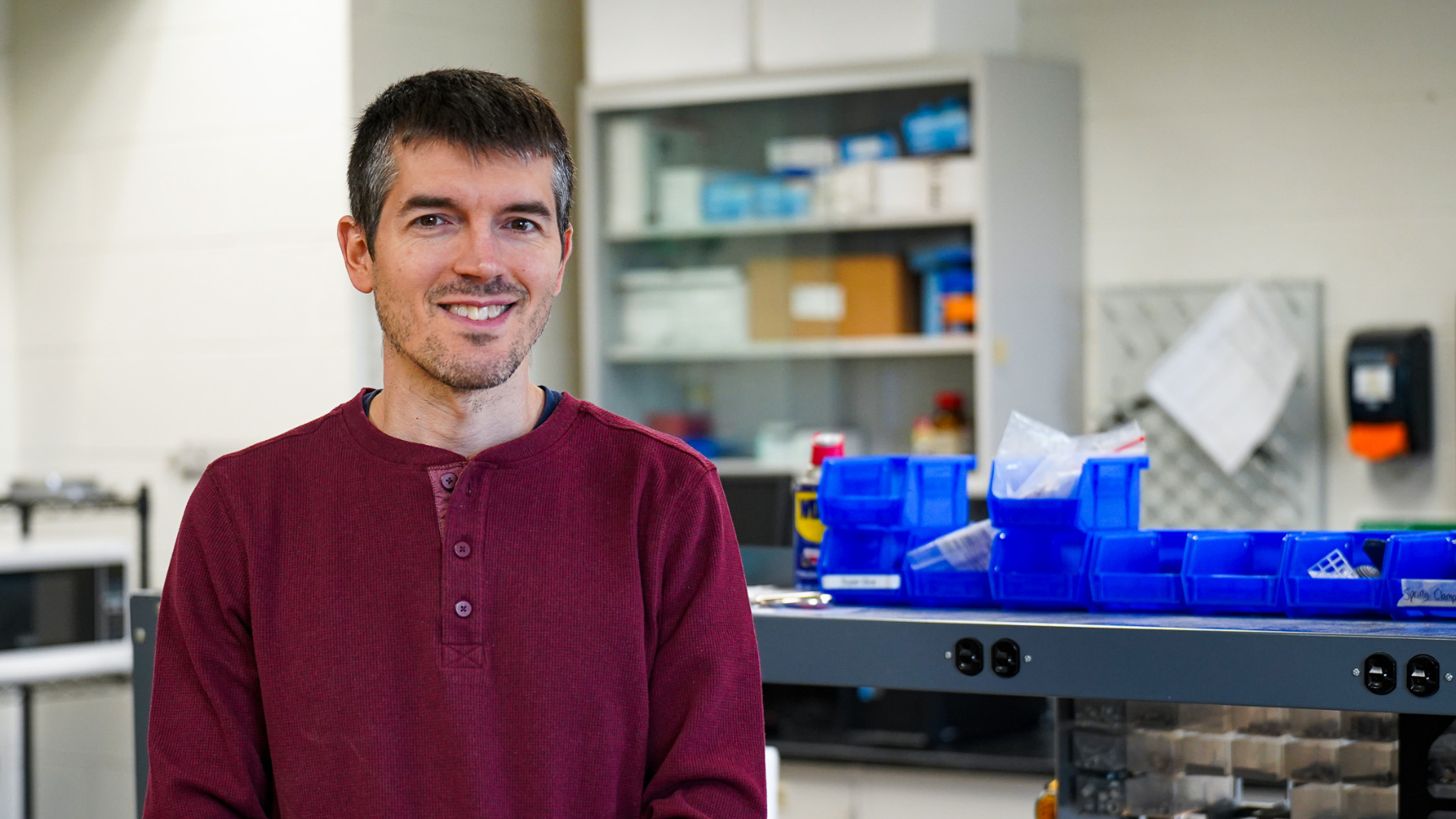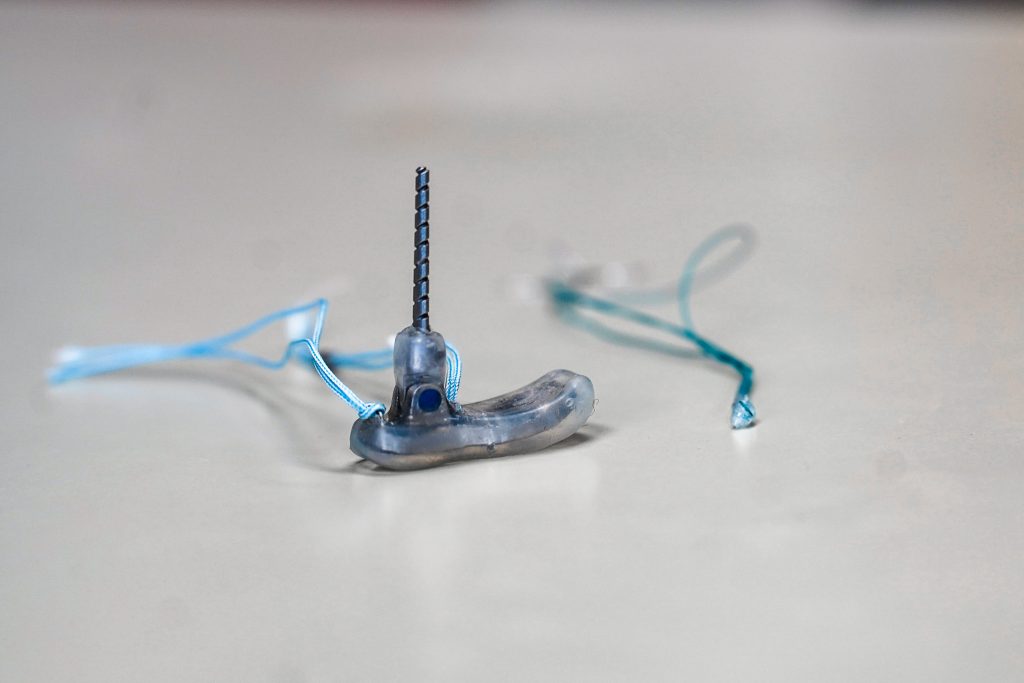
Dr. Dustin Crouch has a new approach to prosthetics, starting with the thumb
His start-up, EndoLimb will help thumb amputees restore shape, size, and function without removing another digit.
Thumbs are a critical part of the human body and design. You probably don’t spend a lot of time thinking about just how much this digit impacts your day-to-day life – but if you lost it, you would certainly notice.
We grab things, hold things, and pinch things. We write, use tools, text, type, tie our shoes, and twist off caps. These are just some of the most basic examples of how much our thumbs do for us. So, imagine losing yours.
Dr. Dustin Crouch is building a prosthesis company to help support thumb amputees. He is developing technology that aims to restore thumb function, offering length, flexibility, skin coverage, and potentially even some sensation of touch.
Crouch pitched his start-up at the University of Tennessee’s Office of Research, Innovation & Economic Development (ORIED) Chancellor’s Innovation Fund and participated in the latest cohort of the Regional Innovation Corps (I-Corps) program. Most recently, the UT Research Foundation approved funding to allow him to hire a postdoctoral researcher to work on the project full-time.
“I started a company in October and am committed to making it a reality,” Crouch said. “My current focus is securing Small Business Innovation Research (SBIR) and Small Business Technology Transfer (STTR) grants.”
Crouch’s path to biomedical engineering wasn’t straightforward. He began his career working for a major corporation, maintaining legacy aircraft engines. While that role didn’t feel like the perfect long-term fit, it opened him up to new engineering pathways and ultimately led him back to school, where he shifted his focus to biomedical engineering.
“Biomedical engineering is so diverse,” Crouch said. “You’re touching medicine and all different kinds of engineering at a microscale. Plus, you communicate across industries, and see the direct impact of your work on people.”
While studying at Wake Forest University, Crouch worked as a research assistant in a biomechanics lab focused on upper extremity movement. After graduating with a PhD, he pursued a postdoctoral position at North Carolina State University, where he spent about three years working in a lab dedicated to prosthesis control.
In 2017, Crouch was offered a faculty position at the University of Tennessee, Knoxville (UTK).
“A mentor once gave me great advice: find a niche and establish yourself as an expert in that area,” he said. Following that advice, Crouch wasted no time carving out his space at UTK.
Through his experiences at NC State, Crouch met many people impacted by amputation. He saw firsthand the struggles they faced with prosthetics—both in terms of functionality and aesthetics.
He noted difficulty in grasping things, lack of ability in precise motor movements, and a feeling of profound loss – both of functionality and confidence in many amputees he worked with.
“Technology and medicine have advanced enough that we need better options now,” he said. “We can improve prosthetics; we just need to pursue it. So, I decided to go for it.”
In October 2024, Crouch officially launched his company, EndoLimb. The company’s flagship innovation is an engineered opposable thumb covered in grafted skin.

“When it comes to the thumb, it’s probably not going to look perfect,” Crouch said. “The patient may not have the little wrinkles or a fingernail, but they will have the length and function. Ultimately, our goal is to achieve some level of touch sensation, even if it’s just minimal.”
The most extreme attempts to reconstruct the thumb involve transferring a patient’s healthy toe or finger to their missing thumb. But these procedures cause other problems with function and body appearance. “These procedures also require highly specialized teams and are only performed at a few centers in the U.S.,” he said. “This limits patient access to advanced care.”
One of the key advantages of his technology, Crouch said, is that it restores shape, size, and function without needing to remove another finger or toe. The surgery to implant the EndoThumb will also be simpler, allowing more medical centers to offer it to more patients.
“Looking ahead, once we master the thumb, we could expand this technology to other fingers or toes. For more extensive amputation, we will have some devices that are jointed and powered by muscle,” he said.
The regional I-Corps program helped Crouch better understand the needs of his customers. It reinforced that a clear path to success exists and that amputees are eager for better prosthetic options. However, Crouch acknowledges that marketing the technology could pose some challenges.
Though patients with amputation are the end users, they rely on recommendations from their orthopedic surgeons. So, building relationships with those surgeons will be critical. They are the ones who will decide to implement this technology.”
In the next year, in addition to securing some SBIR or STTR grants, his focus is on identifying a path to get their device FDA-approved and reimbursable by insurance companies.
If you want to learn more about EndoLimb, connect with Dr. Dustin Crouch.
Like what you've read?
Forward to a friend!

